Find Help
More Items From Ergsy search
-

Female infertility explained
Relevance: 100%
-
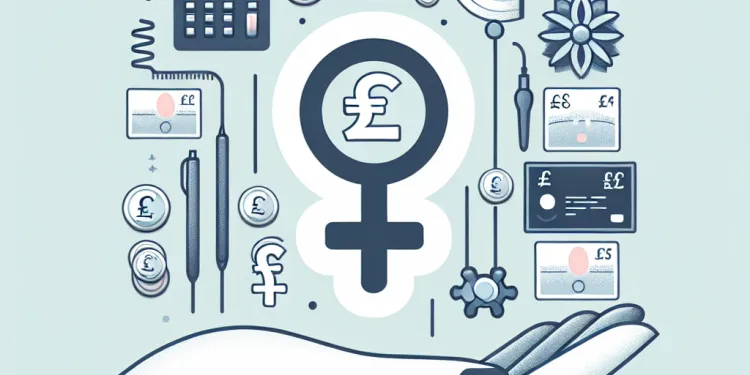
What are the reasons for female infertility?
Relevance: 90%
-

What are the reasons for male infertility?
Relevance: 58%
-

Ian Stones - Test him - Male Infertility
Relevance: 53%
-

Female genital mutilation (FGM) | NHS
Relevance: 43%
-

Female Genital Mutilation: The Facts | NHS
Relevance: 42%
-
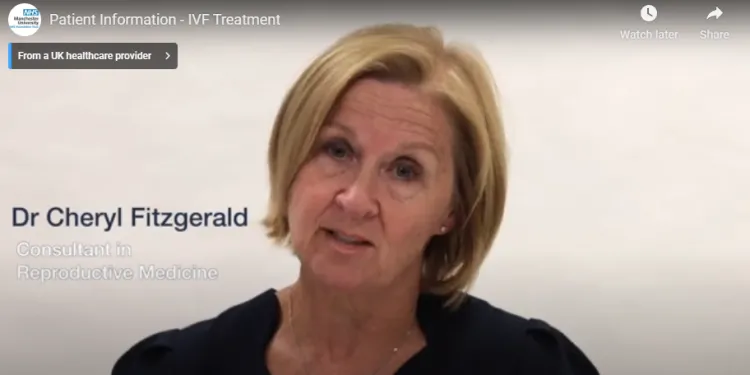
Infertility - IVF Treatment and Patient Information
Relevance: 39%
-

How to apply for NHS funding to treat infertility
Relevance: 39%
-
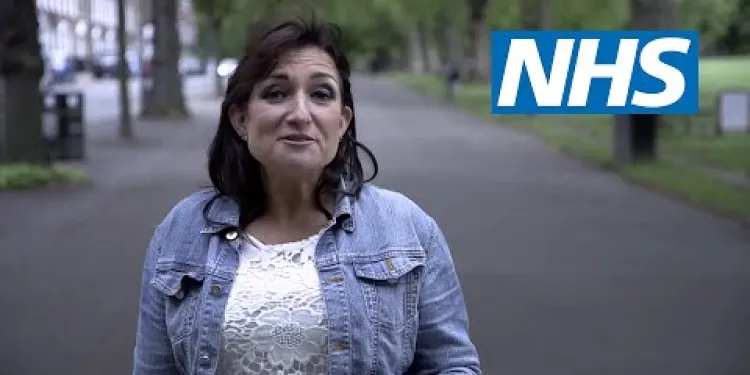
Women talking about their personal experiences of female genital mutilation (FGM) | NHS
Relevance: 33%
-
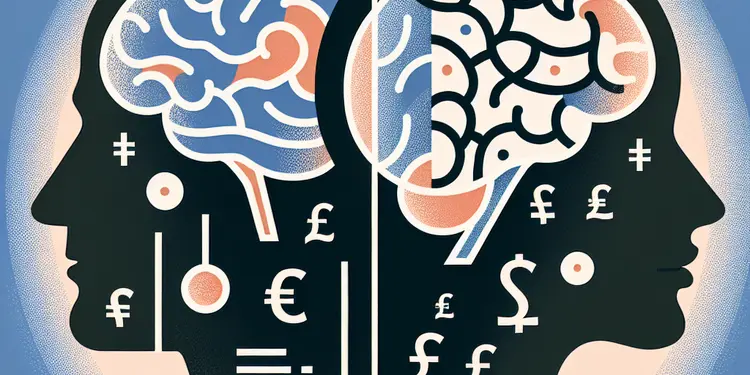
Do male and female brains age differently regarding dementia risk?
Relevance: 33%
-
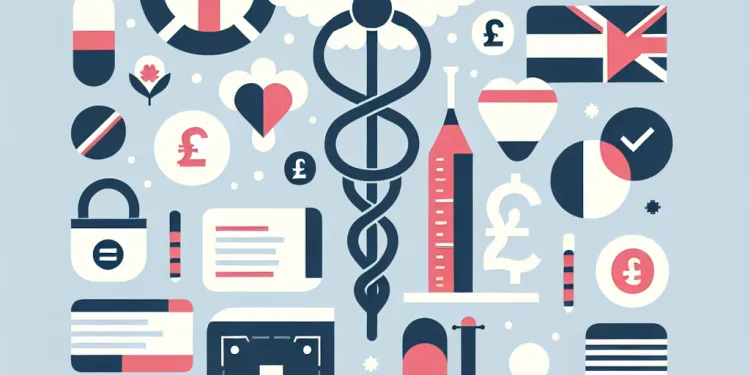
Can HPV cause infertility?
Relevance: 25%
-

Understanding Your Sexual Health - Pelvic Inflammatory Disease
Relevance: 23%
-

Are there any long-term effects of gonorrhoea?
Relevance: 22%
-
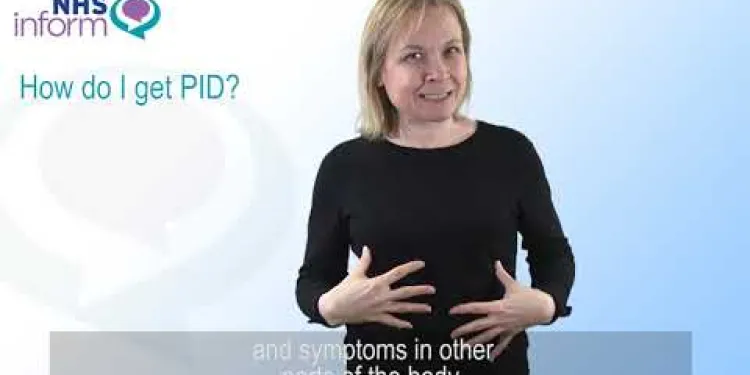
BSL Pelvic inflammatory disease (PID)
Relevance: 20%
-

Do all mosquitoes bite humans?
Relevance: 20%
-

Turner syndrome: Beyond the classic XO phenotype
Relevance: 20%
-
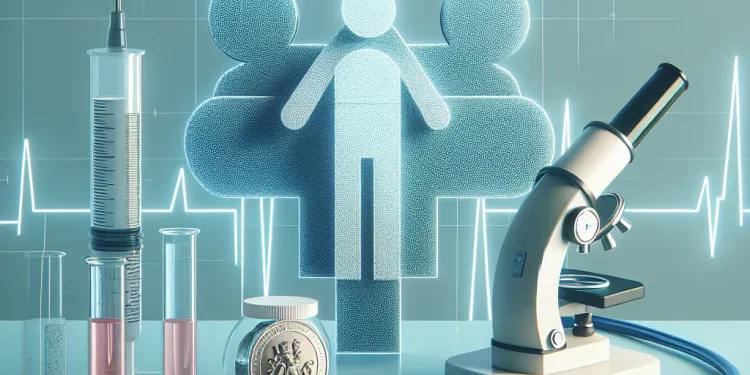
How do clinics determine if IVF is the right option?
Relevance: 19%
-
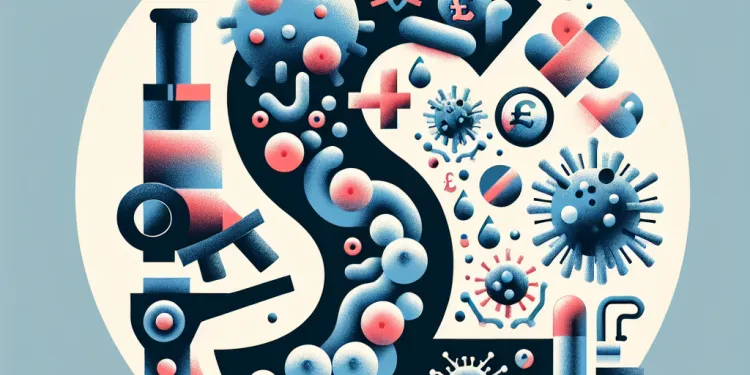
What is chlamydia?
Relevance: 19%
-

IVF Fertility Treatment from MumsNet
Relevance: 18%
-
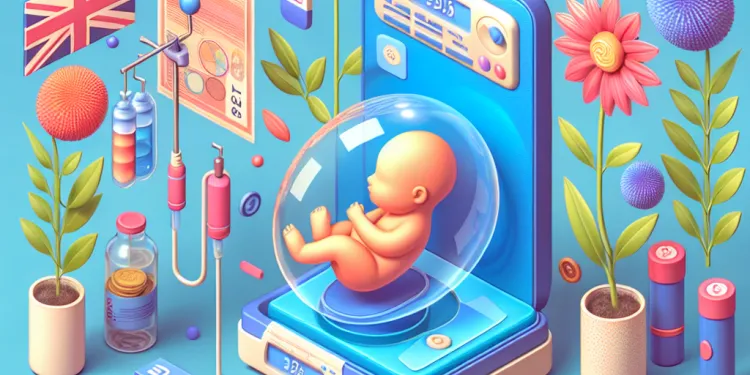
Who might need IVF?
Relevance: 18%
-

How do screw worms reproduce?
Relevance: 17%
-

Does IVF guarantee pregnancy?
Relevance: 16%
-
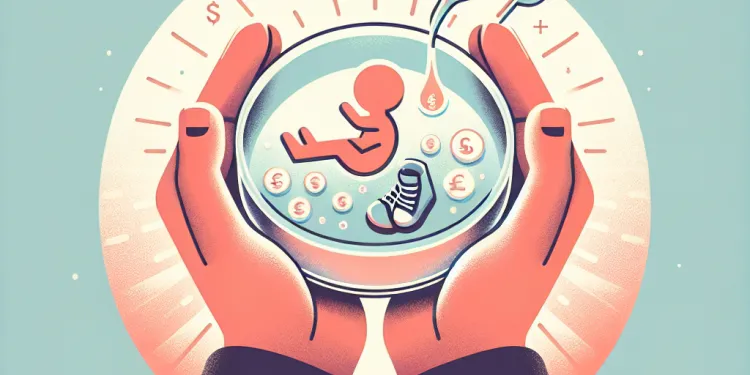
Is IVF successful?
Relevance: 16%
-
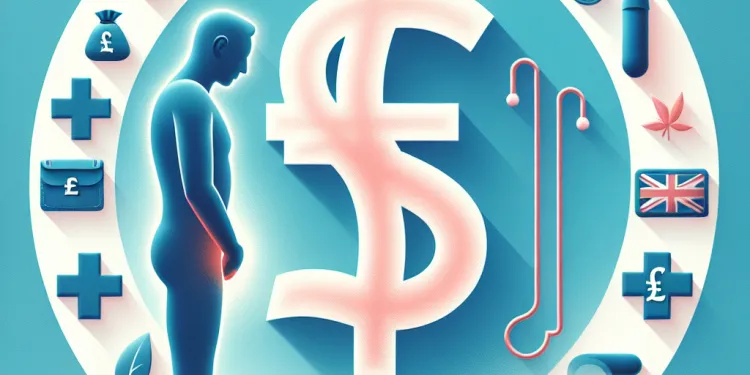
Can gonorrhoea cause complications if left untreated?
Relevance: 14%
-

Cervical screening for women who have experienced sexual assault | NHS
Relevance: 13%
-
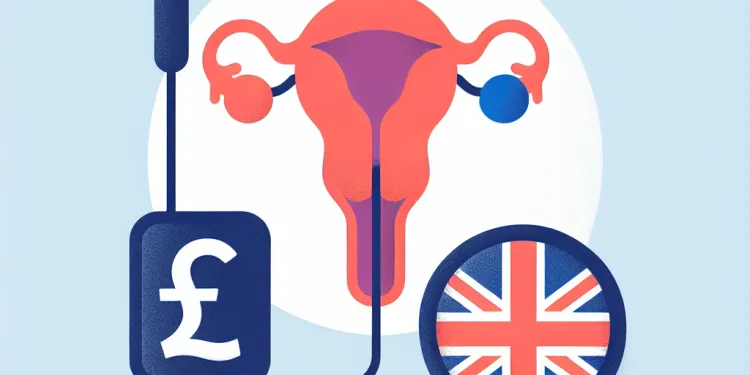
What is IVF?
Relevance: 13%
-

What is IVF and how does it work?
Relevance: 13%
-
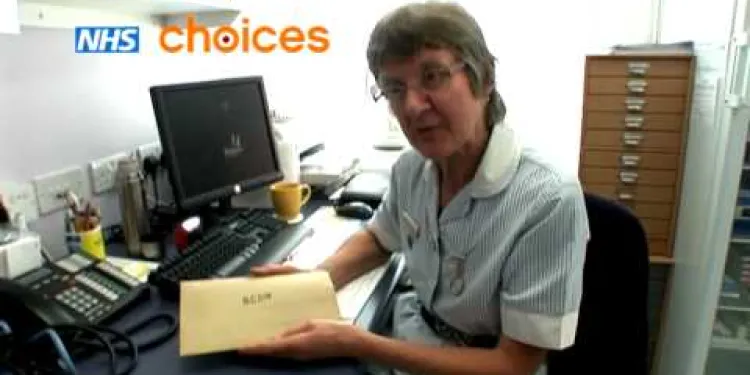
NHS - Chlamydia
Relevance: 12%
-
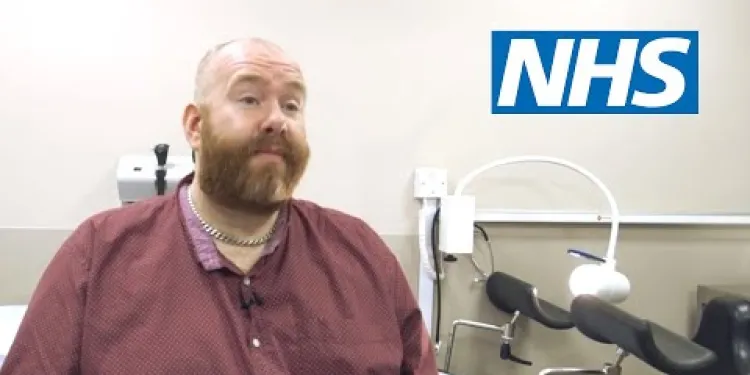
Cervical screening for transgender men | NHS
Relevance: 12%
-
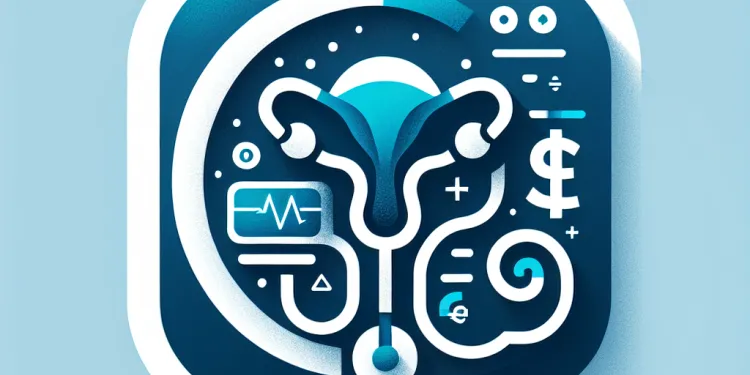
Is the womb lining test covered by the NHS?
Relevance: 12%
-
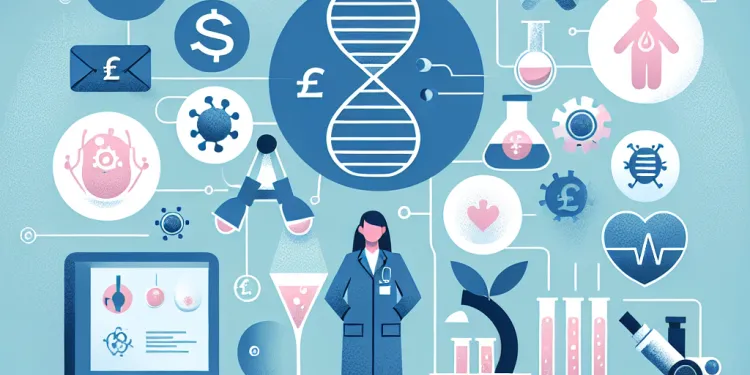
How is the sperm used in IVF?
Relevance: 12%
-

How do lice lay nits?
Relevance: 11%
-

How do screw worms infest their hosts?
Relevance: 11%
-
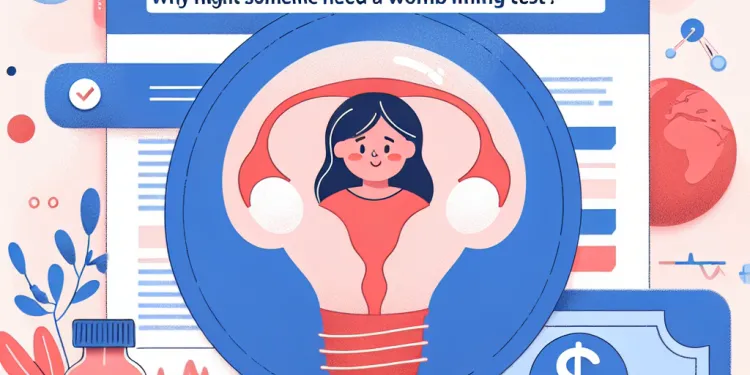
Why might someone need a womb lining test?
Relevance: 11%
-
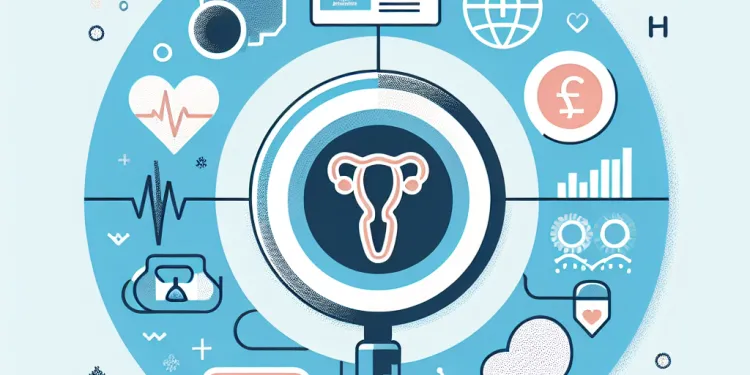
Is the womb lining test covered by the NHS?
Relevance: 11%
-

What is Gonorrhoea?
Relevance: 11%
-
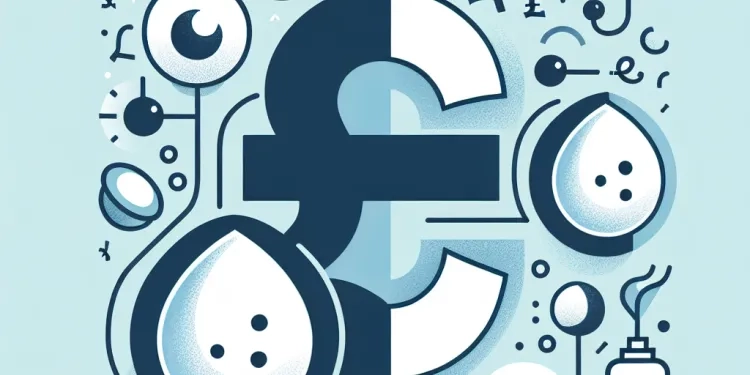
Can IVF be done with donor eggs or sperm?
Relevance: 11%
-

How long does it take for nits to hatch?
Relevance: 11%
-

How does IVF work?
Relevance: 11%
-
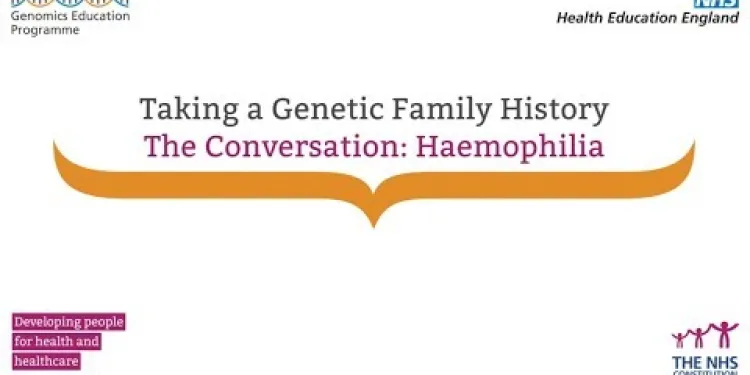
Haemophilia
Relevance: 11%
Understanding Female Infertility
Female infertility is a complex condition that affects many women in the United Kingdom. It is defined as the inability to conceive after a year of regular, unprotected intercourse. Several factors can contribute to female infertility, and understanding them is crucial for both prevention and treatment.
Common Causes of Female Infertility in the UK
There are various causes of female infertility, including ovulatory disorders, tubal damage, endometriosis, and uterine or cervical issues. Ovulatory disorders, such as polycystic ovary syndrome (PCOS), are among the most common, affecting the regular release of eggs. Tubal damage can occur from pelvic inflammatory disease (PID), usually caused by infections like chlamydia and gonorrhea. Endometriosis, where tissue similar to the uterine lining grows outside the uterus, can also impair fertility. Structural issues within the uterus or cervix, such as fibroids or polyps, may additionally impact fertility.
Diagnosis and Testing
Diagnosing female infertility typically involves a series of tests and evaluations. Initial steps include a thorough medical history and physical examination. Blood tests can assess hormone levels to check ovulatory function, while ultrasound scanning can examine the ovaries and uterus. Hysterosalpingography (HSG) is a special X-ray used to inspect the fallopian tubes and uterine cavity for blockages or abnormalities. Laparoscopy, a minimal invasive surgical procedure, may be recommended to view the pelvic organs directly.
Treatment Options Available
Treatment for female infertility varies based on the underlying cause. Lifestyle modifications, such as weight management and quitting smoking, can be beneficial. Medications like clomiphene citrate and letrozole stimulate ovulation. Surgical interventions may be necessary to correct structural issues or remove endometrial tissue. Assisted reproductive technologies (ART), including in vitro fertilisation (IVF) and intrauterine insemination (IUI), are advanced options often used when other treatments are unsuccessful.
Support and Resources
Dealing with infertility can be emotionally challenging, and support is available through various channels in the UK. Fertility clinics offer counselling services, and organisations such as Fertility Network UK provide resources and support groups. Understanding that you are not alone can be a vital component of coping with infertility.
In conclusion, female infertility is a multifaceted issue that requires comprehensive understanding and management. Recognising symptoms early and seeking appropriate medical advice can enhance the chances of conception.
Understanding Female Infertility
Female infertility means some women in the United Kingdom cannot get pregnant. If a woman tries to have a baby for one year without protection and still does not get pregnant, it could be infertility. There are many reasons for female infertility. Knowing these reasons can help to prevent and treat it.
Common Causes of Female Infertility in the UK
There are several reasons why a woman might have trouble getting pregnant. Here are some common causes:
- Problems with ovulation: This is when eggs are not released regularly. A condition called polycystic ovary syndrome (PCOS) can cause this.
- Tubal damage: If the tubes that carry eggs are damaged, pregnancy can be difficult. Infections like chlamydia can cause this damage.
- Endometriosis: This is when tissue grows outside the uterus, making it hard to get pregnant.
- Uterus or cervix issues: Problems like fibroids can affect fertility.
Diagnosis and Testing
If a woman might have infertility, doctors do several tests. First, they might ask questions about health and look at the body. Blood tests check hormone levels. An ultrasound looks at the ovaries and uterus. A special X-ray called HSG checks the tubes for blockages. Sometimes, a small surgery called laparoscopy is needed to see the organs more closely.
Treatment Options Available
The treatment depends on what is causing the infertility. Here are some options:
- Changing lifestyle: Eating healthy and not smoking can help.
- Medicine: Some medicines help with ovulation.
- Surgery: Doctors might do surgery to fix problems.
- Advanced options: Things like IVF and IUI can help if other treatments do not work.
Support and Resources
Infertility can be hard to deal with. Support is available in the UK. Fertility clinics offer counselling. Groups like Fertility Network UK can help, too. Remember, you are not alone, and support is important during this time.
In conclusion, female infertility can be complex. It is important to understand it fully and manage it well. If you notice any symptoms, talk to a doctor early. They can help improve the chances of having a baby.
Frequently Asked Questions
What is female infertility?
Female infertility refers to a condition where a woman is unable to conceive after one year of regular, unprotected intercourse, or six months if the woman is over 35. It can also include the inability to carry a pregnancy to term.
What are the common causes of female infertility?
Common causes include ovulatory disorders, fallopian tube damage or blockages, endometriosis, uterine abnormalities, and age-related factors. Lifestyle factors such as stress, diet, and smoking can also contribute.
How is female infertility diagnosed?
Diagnosis may involve a review of medical history, a physical examination, blood tests to check hormone levels, ultrasound scans, and other procedures such as hysterosalpingography (HSG) to examine the fallopian tubes and uterus.
Can lifestyle changes improve fertility?
Yes, factors like maintaining a healthy weight, eating a balanced diet, avoiding smoking and excessive alcohol intake, and reducing stress can positively impact fertility.
What treatments are available for female infertility?
Treatments vary depending on the cause and can include medication to stimulate ovulation, surgical procedures to correct anatomical issues, and assisted reproductive technologies such as IVF (In Vitro Fertilisation).
What is IVF and how does it work?
IVF stands for In Vitro Fertilisation. It involves retrieving eggs from the ovaries, fertilising them with sperm in a lab, and then transferring the resulting embryo(s) to the uterus.
Does age affect female fertility?
Yes, fertility typically declines with age, especially after 35. This is due to a decrease in the quantity and quality of eggs.
What is the success rate of IVF?
IVF success rates vary based on a woman's age and other factors. In the UK, the average success rate ranges from 29% for women under 35 to 2% for women over 44.
Can stress cause infertility?
Prolonged stress can negatively affect fertility by impacting hormone levels and ovulation. However, stress is rarely the sole cause of infertility.
Is infertility only a female issue?
No, infertility can be due to male or female factors. In about one-third of cases, it is due to female factors; one-third due to male factors; and the remaining third is a combination of both or unexplained.
What role do hormones play in female fertility?
Hormones regulate the menstrual cycle and ovulation. Imbalances in hormones such as FSH, LH, oestrogen, and progesterone can affect fertility.
What is PCOS and how does it affect fertility?
Polycystic Ovary Syndrome (PCOS) is a condition characterised by irregular menstrual cycles, excess androgen levels, and polycystic ovaries. It often leads to ovulatory dysfunction, impacting fertility.
When should a woman see a specialist about infertility?
It's recommended to see a specialist if a woman under 35 has been trying to conceive for a year without success, or after six months if she is over 35. Also, if there are known medical issues that may impact fertility.
Are there any natural treatments for female infertility?
Some natural approaches include dietary supplements, acupuncture, herbal treatments, and lifestyle modifications. However, it's important to consult with a healthcare provider before starting any natural treatments.
Can endometriosis lead to infertility?
Yes, endometriosis can cause infertility by creating scar tissue and adhesions that may obstruct the fallopian tubes, interfere with egg release, and affect implantation.
What is female infertility?
Female infertility means it is hard for a woman to have a baby. It can be because of different reasons. Sometimes, it is because of problems with the woman's body. It can also be because of other things like stress or health.
Ask a doctor if you are worried. They can help and give you good advice.
Use pictures and videos to learn more. These tools can make it easier to understand.
Female infertility means a woman can't get pregnant after trying for one year without using birth control. If she is over 35 years old, it means she can't get pregnant after six months of trying. It can also mean she has trouble staying pregnant.
What can make it hard for women to have babies?
There can be many reasons why someone might have trouble getting pregnant. Some common reasons are:
- Problems with ovulation (when the egg is released).
- Tubes (called fallopian tubes) that are blocked or damaged.
- A condition called endometriosis.
- Problems with the uterus (where the baby grows).
- Getting older can also make it harder to get pregnant.
Things like stress, what you eat, and smoking can also make it harder to have a baby.
If you need help, think about using tools like picture books or simple videos to learn more. Talking to a doctor can also help.
How do doctors find out if a woman cannot have a baby?
Doctors use different tests to check if a woman can have a baby. Here are some ways they do it:
- Ask questions: The doctor will talk to the woman about her health and periods.
- Look at the body: The doctor will check the woman's body to see if everything is okay.
- Special pictures: The doctor might use a machine, like an ultrasound, to look inside the woman's body.
- Check blood: The doctor might take some blood to see if the hormones are normal.
If you find reading hard, ask someone you trust to help you. You can also use tools that read the text out loud or make it bigger.
Doctors find out what is wrong by looking at your health history, checking your body, and doing blood tests to see hormone levels. They might also use a machine called an ultrasound to look inside the body. Another test called HSG helps doctors look at the tubes in a woman's body where babies grow.
Using tools like pictures and simple charts can help you understand these tests better. Always ask your doctor to explain things in a way that makes sense to you if you're unsure.
Can changing what we do help us have babies?
Changing some daily habits can help when trying to have a baby. Here are some easy tips:
- Eat healthy food like fruits, vegetables, and whole grains.
- Move around! Play sports or go for walks each day.
- Get enough sleep every night.
- Stay away from smoking and too much alcohol.
These changes can make it easier for some people to have babies.
If you need more help, tools like apps or talking with a doctor might be useful.
Yes, there are things you can do to help with having a baby:
- Stay at a healthy weight.
- Eat good and balanced meals.
- Don't smoke.
- Don't drink too much alcohol.
- Try to keep stress low.
These can all help you have a baby.
You can use things like reminder apps to keep track of these habits or talk to a doctor for more help.
What can help if a woman is having trouble having a baby?
There are ways to help if a woman finds it hard to have a baby. Here are some things that might help:
- Seeing a doctor: The doctor can check to see why it is hard to have a baby.
- Medicine: Some medicine can help women have a baby.
- Special procedures: Doctors can do special treatments to help with having a baby. One is called IVF.
- Talk with an expert: Visiting a counselor can help women feel better and talk about how they feel.
It is important to ask for help. Friends, family, and doctors can be supportive.
Treatments can be different based on the problem. They can include:
- Medicine to help make eggs.
- Surgery to fix body problems.
- Special help to have a baby, like IVF, where a baby is made outside the body.
Some tools and techniques that might help are:
- Using simple words to talk about treatments.
- Using pictures to explain what happens.
- Being patient and answering questions.
What is IVF and how does it work?
IVF is a way to help people have a baby.
Here is how it works:
- Doctors take an egg from a woman's body.
- They add sperm to the egg to make it join together.
- The joined egg, called an embryo, is put back into the woman's body.
- If the embryo grows well, it can become a baby.
People can use pictures or videos to understand IVF better.
It helps to talk to a doctor or nurse if you have questions.
IVF means In Vitro Fertilisation. In IVF, doctors take eggs from a woman's body. They mix the eggs with sperm in a special lab. This makes a tiny baby start to grow, called an embryo. Then they put the embryo back into the woman's tummy.
If you find this difficult to understand, you can ask someone to help explain it. You can also use pictures or videos to see how IVF works.
Does age change a woman's ability to have babies?
Yes, having babies can be harder as you get older. After age 35, it's especially harder because there are fewer and not as good eggs.
How often does IVF work?
How well IVF works depends on a woman's age and other things. In the UK, if a woman is under 35, IVF works about 29 times out of 100. If a woman is over 44, IVF works about 2 times out of 100.
To help understand these numbers, you can:
- Use pictures or charts to see the difference.
- Ask a doctor to explain what the numbers mean for you.
- Talk to someone who knows about IVF.
Can stress make it hard to have a baby?
Feeling very stressed or worried a lot can sometimes make it harder to have a baby. If you are worried about stress, talk to a doctor or someone you trust.
Some things that can help with stress are:
- Talking to friends or family
- Doing exercises like walking or yoga
- Relaxing with music or reading
If you feel sad or worried often, there are people who can help. Doctors, counselors, or support groups can listen and give good advice.
Being stressed for a long time can make it harder to have a baby. Stress can change your body's hormones and how often you release eggs. But stress is usually not the only reason someone can't have a baby.
Can only women have problems having babies?
No, problems having babies can be because of men or women. In about one out of three times, it is because of women; one out of three times because of men; and the last one out of three times, it is because of both or for reasons we don’t know.
If reading this is hard, you can use tools like text-to-speech to hear it read aloud. Drawing pictures or using finger-counting can also help understand numbers better.
What do hormones do for female fertility?
Hormones are natural chemicals in the body. They are like messengers. They tell different parts of the body what to do.
In women, hormones help with having babies. They are very important for making sure everything works right in the body to have a baby.
If you want help reading, you can try using audiobooks or reading with a friend. Pictures and videos can also help you understand better.
Hormones are special chemicals in the body. They help control the menstrual cycle and when a woman can have a baby. If there is too much or too little of these hormones, it can be harder to have a baby.
Some important hormones are called FSH, LH, oestrogen, and progesterone. These help with having babies.
For help with reading, you can find stories with pictures, or ask someone to read with you.
What is PCOS and how does it affect having babies?
PCOS stands for Polycystic Ovary Syndrome. It is a health condition that affects a woman's hormones.
Here is how PCOS can make it harder to have babies:
- PCOS can change a woman's monthly cycle.
- It might make it harder for women to release eggs.
- This can make it difficult for women to become pregnant.
If you or someone you know has PCOS, it is helpful to talk to a doctor. They can give advice and support.
Polycystic Ovary Syndrome, or PCOS, is a health problem that affects how a woman's ovaries work.
Women with PCOS have:
- Periods that do not come regularly.
- Too much of a hormone called androgen. This can cause extra hair on the body and acne.
- Ovaries that have many small cysts (fluid-filled shapes).
PCOS can make it hard for a woman to have a baby because it affects when her body releases an egg. This is called ovulation.
Helpful tools: Reading aloud can be helpful. You can also use a highlighter to mark important parts. Controlling text size is useful too.
When should a woman talk to a doctor about not being able to have a baby?
If a woman is under 35 years old and can't have a baby after trying for one year, she should see a special doctor. If she is over 35 years old, she should see a doctor after trying for six months. It's also good to see a doctor if there are health problems that might make it hard to have a baby.
Can nature help women have babies?
Some women have trouble having babies. Can nature help? There are some natural ways that might help.
- Healthy Food: Eating good food is important. Try to eat fruits, vegetables, and whole grains.
- Exercise: Moving your body can help. Try to play or exercise a little each day.
- Relax: Being calm and happy is good. Try to do things that make you feel relaxed, like drawing or listening to music.
- Talk to a Doctor: If you are worried, talk to a doctor. They can give good advice.
Remember, it's okay to ask for help. You are not alone. Many people care about you and want to help.
There are some natural ways that might help, like taking vitamins, using small needles called acupuncture, trying special plants, or changing how you live. But it's really important to talk to a doctor before trying any of these things.
Can endometriosis make it hard to have a baby?
Endometriosis is a health problem. It can make it hard for some people to have a baby. This is called infertility.
If you find it hard to read this, you can use:
- Pictures to help understand words.
- A friend or helper to read with you.
- Online tools that read the text out loud.
Yes, endometriosis can make it hard to have a baby. It can cause scars and sticky tissue that block the tubes that carry eggs. This means eggs can’t get through and it might stop a baby from growing.
Tips to help:
- Talk to a doctor. They can explain more.
- Use simple diagrams to understand better.
- Watch videos that explain endometriosis to learn more.
Useful Links
This website offers general information and is not a substitute for professional advice.
Always seek guidance from qualified professionals.
If you have any medical concerns or need urgent help, contact a healthcare professional or emergency services immediately.
Some of this content was generated with AI assistance. We’ve done our best to keep it accurate, helpful, and human-friendly.
- Ergsy carfully checks the information in the videos we provide here.
- Videos shown by Youtube after a video has completed, have NOT been reviewed by ERGSY.
- To view, click the arrow in centre of video.
- Most of the videos you find here will have subtitles and/or closed captions available.
- You may need to turn these on, and choose your preferred language.
- Go to the video you'd like to watch.
- If closed captions (CC) are available, settings will be visible on the bottom right of the video player.
- To turn on Captions, click settings .
- To turn off Captions, click settings again.
More Items From Ergsy search
-

Female infertility explained
Relevance: 100%
-

What are the reasons for female infertility?
Relevance: 90%
-

What are the reasons for male infertility?
Relevance: 58%
-

Ian Stones - Test him - Male Infertility
Relevance: 53%
-

Female genital mutilation (FGM) | NHS
Relevance: 43%
-

Female Genital Mutilation: The Facts | NHS
Relevance: 42%
-

Infertility - IVF Treatment and Patient Information
Relevance: 39%
-

How to apply for NHS funding to treat infertility
Relevance: 39%
-

Women talking about their personal experiences of female genital mutilation (FGM) | NHS
Relevance: 33%
-

Do male and female brains age differently regarding dementia risk?
Relevance: 33%
-

Can HPV cause infertility?
Relevance: 25%
-

Understanding Your Sexual Health - Pelvic Inflammatory Disease
Relevance: 23%
-

Are there any long-term effects of gonorrhoea?
Relevance: 22%
-

BSL Pelvic inflammatory disease (PID)
Relevance: 20%
-

Do all mosquitoes bite humans?
Relevance: 20%
-

Turner syndrome: Beyond the classic XO phenotype
Relevance: 20%
-

How do clinics determine if IVF is the right option?
Relevance: 19%
-

What is chlamydia?
Relevance: 19%
-

IVF Fertility Treatment from MumsNet
Relevance: 18%
-

Who might need IVF?
Relevance: 18%
-

How do screw worms reproduce?
Relevance: 17%
-

Does IVF guarantee pregnancy?
Relevance: 16%
-

Is IVF successful?
Relevance: 16%
-

Can gonorrhoea cause complications if left untreated?
Relevance: 14%
-

Cervical screening for women who have experienced sexual assault | NHS
Relevance: 13%
-

What is IVF?
Relevance: 13%
-

What is IVF and how does it work?
Relevance: 13%
-

NHS - Chlamydia
Relevance: 12%
-

Cervical screening for transgender men | NHS
Relevance: 12%
-

Is the womb lining test covered by the NHS?
Relevance: 12%
-

How is the sperm used in IVF?
Relevance: 12%
-

How do lice lay nits?
Relevance: 11%
-

How do screw worms infest their hosts?
Relevance: 11%
-

Why might someone need a womb lining test?
Relevance: 11%
-

Is the womb lining test covered by the NHS?
Relevance: 11%
-

What is Gonorrhoea?
Relevance: 11%
-

Can IVF be done with donor eggs or sperm?
Relevance: 11%
-

How long does it take for nits to hatch?
Relevance: 11%
-

How does IVF work?
Relevance: 11%
-

Haemophilia
Relevance: 11%


